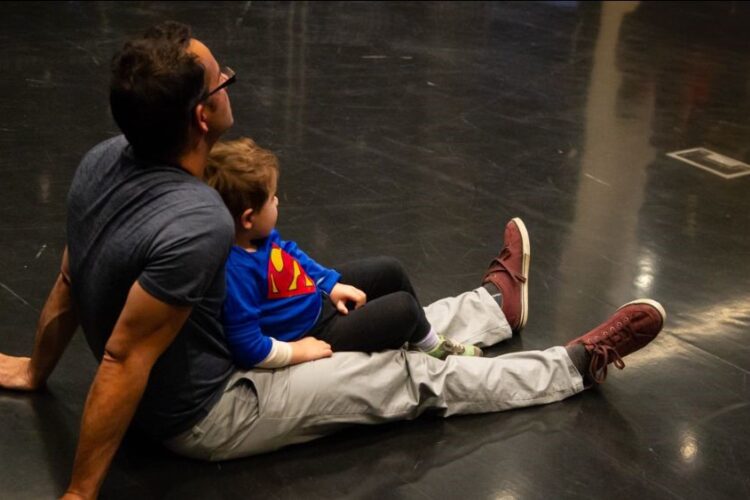
October 1st, 2021
Ways to avoid burnout
These are challenging times, requiring us to consider how our thoughts and actions help or hinder our capacity for resilience – both at the personal and team level. Dr Lucy Hone suggests ways to avoid burnout.
Have you ever laid in bed and found yourself thinking, ‘I’m done, I cannot do this job any longer, I’m absolutely exhausted – there’s really no point in me getting up, nothing I do seems to make a difference’? That’s the voice of burnout warning you that it’s time to make change. 
The reality though is that most people don’t know how to avoid burnout. In fact, mostly all they know about it is that it involves complete exhaustion and seems to come on fast. Both are partially correct, but simplistic summaries of a complex occupational syndrome.
While we often hear about burnout coming on suddenly, it’s more likely we missed (or overlooked) the warning signs. The fine line between hyper-engaged/super-productivity and burnout makes it hard to spot. Sadly, people who love their jobs are at elevated risk of burnout because the temptation is to give more and do more (to work) and give less and do less (to home/leisure). Doesn’t sound very attractive as I write it, but somehow that’s the magnetic trap that threatens, week in, week out.
Similarly, viewing burnout as physical, emotional, and mental exhaustion overlooks its two other tell-tale signs: feelings of over-arching cynicism and ineffectiveness. If you find yourself eye-rolling and scoffing at colleagues and/or doubting your own ability to achieve, then it’s time for a break
The research shows that holidays do help – workers who don’t take holidays are at a greater risk of burnout, more emotionally exhausted when they’re at work and, according to the Framingham Heart Study, at increased risk of heart attack – but also that their impact is short-lived: a one-week holiday will see you refreshed for anywhere between three days and three weeks.
So, in current times, when, for many, there’s no getting away from home, what can you do to prevent yourself from being yet another burnout statistic? I find it helpful here to separate out the things you can do away from work and the things you can do at work. The following is based on empirical evidence.
First up, we must find ways to stop thinking about work when we’re not there. Mastering a new skill is a reliable route to psychological recovery: any activity that absorbs you sufficiently to take your mind off work acts as a buffer against workplace stress. My own research also suggests that ‘Keep Learning’ was the most highly predictive indicator of psychological flourishing among the Five Ways to Wellbeing in a large sample of New Zealand working adults.
Second, it pays to understand the workplace drivers so we can change our individual and team practices:
- Work overload: I know it’s not easy to ensure work volumes don’t outstrip available time and resources, but it is both critical and possible. Consider how you can reduce different aspects of workload, such as meetings, emails, zoom calls – for yourself and your teams. Burnout is costly in so many ways, so you’re better to delay a project, or get more selective in the contracts you do take on, than lose the plot or a colleague. Ultimately something has to give, make sure it’s not you, or your team.
- Lack of autonomy: Humans work best when they are given the opportunity to make choices and decisions for themselves; autonomy builds respect. Insufficient authority over the way they work (being micro-managed) predicts burnout. Where and how can you find more autonomy, or provide more for your teams?
- Feeling under-valued: Lack of recognition from management, colleagues, and clients pushes workers to tune out and stop caring about the end results. Whether it’s in the form of praise, pay, or even personal pride, we all crave reward. Make sure you tune into your own value, notice/praise people’s individual and collective contributions and share wins. Instead of gloating think of it as building high-quality connections and team resilience.
- Lack of support: The overall quality of social interactions in your workplace matters: the better relationships, and the better and faster conflicts are resolved, the lesser the odds of burnout. Workers need to feel resourced and supported, that their opinions count, and that they can be themselves. Insufficient access to the resources required to do their job effectively quickly results in cynicism. Know your teams well enough to sense who needs support, when they need it, and in what form.
- Unfairness: Fairness is paramount: your teams will be far more concerned about the fairness of your conflict resolution processes than how favourable the outcome is. Make sure their job descriptions match their contribution and give credit where/when it is due.
- Values disconnect: Employees are particularly susceptible to burnout when a disconnect exists (or arises) between their deeply held personal values and the environment they work in. It’s virtually impossible to feel good about your work when a values conflict exists.
What’s something sufficiently engaging that it will consume your thinking, drown out the call of work and provide you some peace?
Where can you boost autonomy, support, and fairness at work?
How can you ruthlessly priorities your workload each day/week and what’s your go-to strategy to say no?
– Dr Lucy Hone | Co-founder, New Zealand Institute of Wellbeing & Resilience | Consultant, Leadership Lab | Her TED Talk, 3 Secrets of Resilient People, has had over 5 million views. Follow her work on Linkedin.

October 1st, 2021
Ways to avoid burnout
These are challenging times, requiring us to consider how our thoughts and actions help or hinder our capacity for resilience – both at the personal and team level. Dr Lucy Hone suggests ways to avoid burnout.
Have you ever laid in bed and found yourself thinking, ‘I’m done, I cannot do this job any longer, I’m absolutely exhausted – there’s really no point in me getting up, nothing I do seems to make a difference’? That’s the voice of burnout warning you that it’s time to make change. 
The reality though is that most people don’t know how to avoid burnout. In fact, mostly all they know about it is that it involves complete exhaustion and seems to come on fast. Both are partially correct, but simplistic summaries of a complex occupational syndrome.
While we often hear about burnout coming on suddenly, it’s more likely we missed (or overlooked) the warning signs. The fine line between hyper-engaged/super-productivity and burnout makes it hard to spot. Sadly, people who love their jobs are at elevated risk of burnout because the temptation is to give more and do more (to work) and give less and do less (to home/leisure). Doesn’t sound very attractive as I write it, but somehow that’s the magnetic trap that threatens, week in, week out.
Similarly, viewing burnout as physical, emotional, and mental exhaustion overlooks its two other tell-tale signs: feelings of over-arching cynicism and ineffectiveness. If you find yourself eye-rolling and scoffing at colleagues and/or doubting your own ability to achieve, then it’s time for a break
The research shows that holidays do help – workers who don’t take holidays are at a greater risk of burnout, more emotionally exhausted when they’re at work and, according to the Framingham Heart Study, at increased risk of heart attack – but also that their impact is short-lived: a one-week holiday will see you refreshed for anywhere between three days and three weeks.
So, in current times, when, for many, there’s no getting away from home, what can you do to prevent yourself from being yet another burnout statistic? I find it helpful here to separate out the things you can do away from work and the things you can do at work. The following is based on empirical evidence.
First up, we must find ways to stop thinking about work when we’re not there. Mastering a new skill is a reliable route to psychological recovery: any activity that absorbs you sufficiently to take your mind off work acts as a buffer against workplace stress. My own research also suggests that ‘Keep Learning’ was the most highly predictive indicator of psychological flourishing among the Five Ways to Wellbeing in a large sample of New Zealand working adults.
Second, it pays to understand the workplace drivers so we can change our individual and team practices:
- Work overload: I know it’s not easy to ensure work volumes don’t outstrip available time and resources, but it is both critical and possible. Consider how you can reduce different aspects of workload, such as meetings, emails, zoom calls – for yourself and your teams. Burnout is costly in so many ways, so you’re better to delay a project, or get more selective in the contracts you do take on, than lose the plot or a colleague. Ultimately something has to give, make sure it’s not you, or your team.
- Lack of autonomy: Humans work best when they are given the opportunity to make choices and decisions for themselves; autonomy builds respect. Insufficient authority over the way they work (being micro-managed) predicts burnout. Where and how can you find more autonomy, or provide more for your teams?
- Feeling under-valued: Lack of recognition from management, colleagues, and clients pushes workers to tune out and stop caring about the end results. Whether it’s in the form of praise, pay, or even personal pride, we all crave reward. Make sure you tune into your own value, notice/praise people’s individual and collective contributions and share wins. Instead of gloating think of it as building high-quality connections and team resilience.
- Lack of support: The overall quality of social interactions in your workplace matters: the better relationships, and the better and faster conflicts are resolved, the lesser the odds of burnout. Workers need to feel resourced and supported, that their opinions count, and that they can be themselves. Insufficient access to the resources required to do their job effectively quickly results in cynicism. Know your teams well enough to sense who needs support, when they need it, and in what form.
- Unfairness: Fairness is paramount: your teams will be far more concerned about the fairness of your conflict resolution processes than how favourable the outcome is. Make sure their job descriptions match their contribution and give credit where/when it is due.
- Values disconnect: Employees are particularly susceptible to burnout when a disconnect exists (or arises) between their deeply held personal values and the environment they work in. It’s virtually impossible to feel good about your work when a values conflict exists.
What’s something sufficiently engaging that it will consume your thinking, drown out the call of work and provide you some peace?
Where can you boost autonomy, support, and fairness at work?
How can you ruthlessly priorities your workload each day/week and what’s your go-to strategy to say no?
– Dr Lucy Hone | Co-founder, New Zealand Institute of Wellbeing & Resilience | Consultant, Leadership Lab | Her TED Talk, 3 Secrets of Resilient People, has had over 5 million views. Follow her work on Linkedin.

